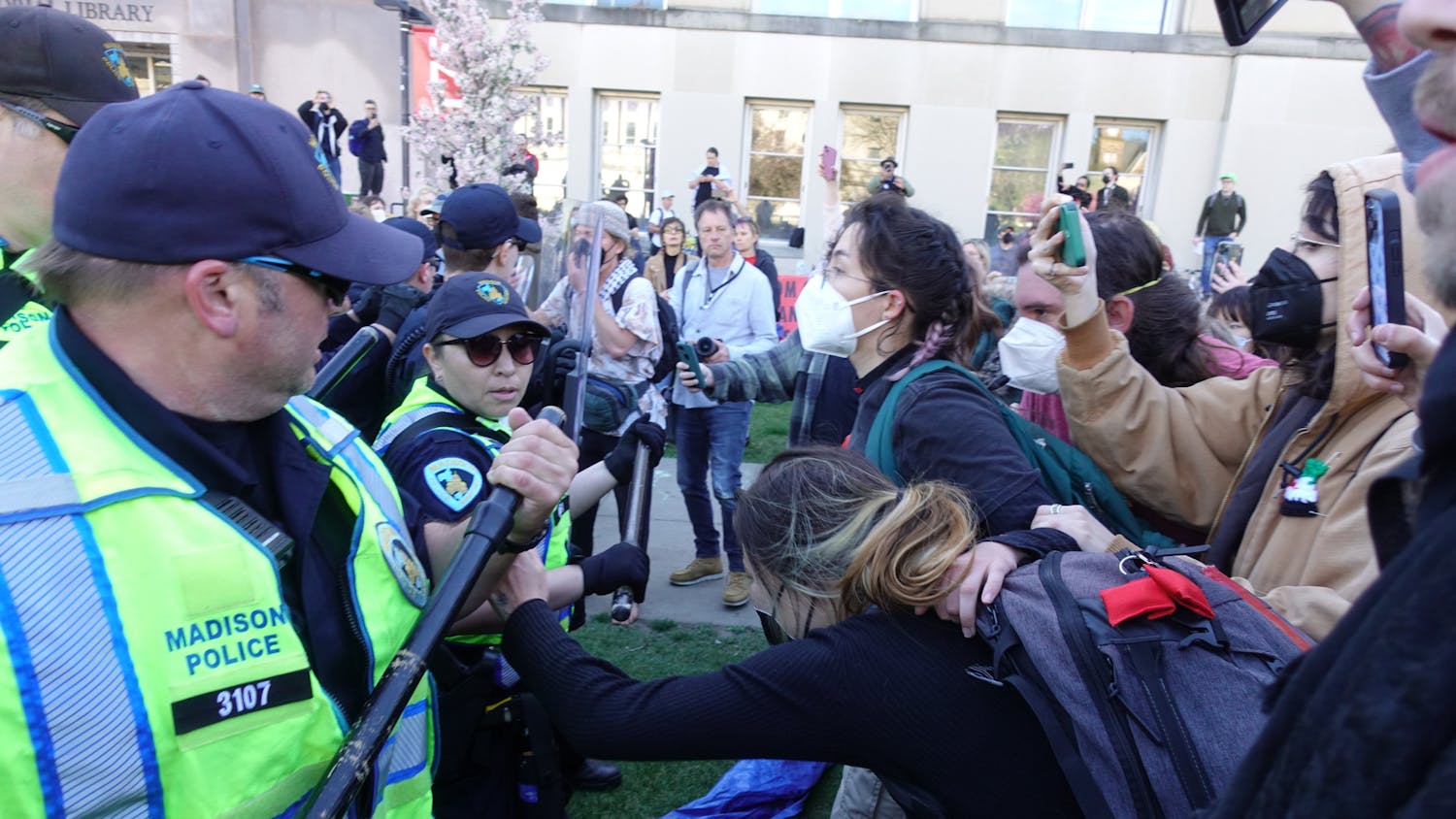University of Wisconsin-Madison students are surrounded by a prevalent party culture on campus that consists of going out on the weekends, tailgating on game days and hitting the bars — which oftentimes involves drinking. For a certain group of students, this aspect of campus culture is avoided for that reason.
Students in active recovery from substance abuse and addiction can turn to Badger Recovery, a program that holds peer-to-peer weekly meetings to aid those on their recovery journey or looking to start.
“Everyone’s on their own path of recovery,” said Jenny Damask, who helped found the program in September 2020.
Damask, who is the assistant director for high-risk drinking prevention at University Health Services, said the program was initially launched in an all-virtual format but now holds in-person meetings with a virtual option. Attendees can be connected with coaching and resources on recovery and find community among others in similar positions as themselves.
According to Damask, the meetings do not subscribe to typical recovery-type meetings like Alcoholics Anonymous, which are geared toward adults and community members. Instead, Badger Recovery is centered on students’ experiences.
“We really just want to be this welcoming place where people in recovery can thrive,” she told The Daily Cardinal. “And talk about concerns or struggles or triumphs that they're experiencing.”
Peer-to-peer support and connection at meetings are facilitated by Badger Recovery student assistants, who plan bonding events that aim to generate friendships outside of time in discussion, Damask said.
Henry Hank, a 26-year-old Badger Recovery student assistant in recovery, said he finds it easy to steer clear of the party culture on campus because he came to the university with over two years of sobriety.
“Part of me still feels like there is the [fear of missing out], and I wish I could still be a part of the culture of, you know, living on campus and connecting with people in that way,” Hank said. “But I know from past experiences how shallow all that is.”
Hank said he stayed at outpatient centers and attended 12-step recovery meetings while he fought substance abuse for hard drugs over several years after graduating high school.
“I usually try to stay away from bringing that up in the meetings because I'm not trying to scare away anybody,” he said. “A lot of people are there for like nicotine, and we're not trying to make them feel less then. But I mean, that's just the reality of my story.”
Discussion about experiences and feelings in recovery meetings can feel uncomfortable and abnormal, but it gives students an opportunity to get advice, vent and cultivate a sense of fellowship, especially for most who have not participated in a recovery meeting before, Hank explained.
“We're getting vulnerable and talking about things we're struggling with,” he said. “That's not normal, I know how it's not normal.”
Recently, students and student assistants have been following meetings with dinners on State Street together, which Hank said will help the group feel like a community that’s more than just seeing each other twice a week for an hour.
“It’s just something good to do,” he said. “And at a minimum, it's like one hour or one night that you're not going to go out and drink.”
Badger Recovery received anonymous participant statements from a survey they sent out once, and many noted how the program has provided a campus community that feels like home, where members can open up, be vulnerable and share struggles that some don’t get a chance to in typical social situations.
“I feel more included at UW-Madison. I feel I have a safe place to talk about my feelings and issues. I enjoy helping and supporting others,” one Badger Recovery member said.
According to Damask, that’s what peer-to-peer recovery is all about — finding community and finding who your people are. She said oftentimes, members will find community no matter what because there are similar-minded people coming in to talk about similar things.
“When we're bringing together people in recovery, there's going to be people you're naturally gravitating towards,” Damask said.
“It's made me feel less alone, and I've been given a lot of valuable feedback and suggestions from my peers that have improved my mental and physical well-being,” another member added.
Damask and Hank both pointed out the lack of sober dormitories, rooms or centers on campus and how that’s something they hope for in the future. They said other colleges similar to UW-Madison have well-established collegiate recovery programs already with sober living spaces.
“I mean of all campuses, [UW-Madison] is one that could use it, honestly,” Hank said.
They also hope to expand their services with more targeted outreach, in particular potential identity groups for women or LGBTQ+ communities, and groups for graduate students, Damask said.
Hank said he would like to see more people at meetings and increase awareness of the program, but it’s difficult because, unlike most other student organizations, not everyone can participate.
“For a lot of college kids, [they’re] really early on to figuring out, or are not even aware, that they're overdoing something,” he said. “I think a big way to [expand] is to get more awareness around the program. I think a lot of students don't even know that it's offered.”
“If we can help people maintain recovery and goals around wellbeing and wellness, we can give [students] years of their life back,” Damask added.
Students looking to learn more about the collegiate recovery process at UW-Madison can read more here or email a staff member at recovery@uhs.wisc.edu. Badger Recovery meetings are held every Tuesday and Thursday in person at College Library or online via Zoom.






